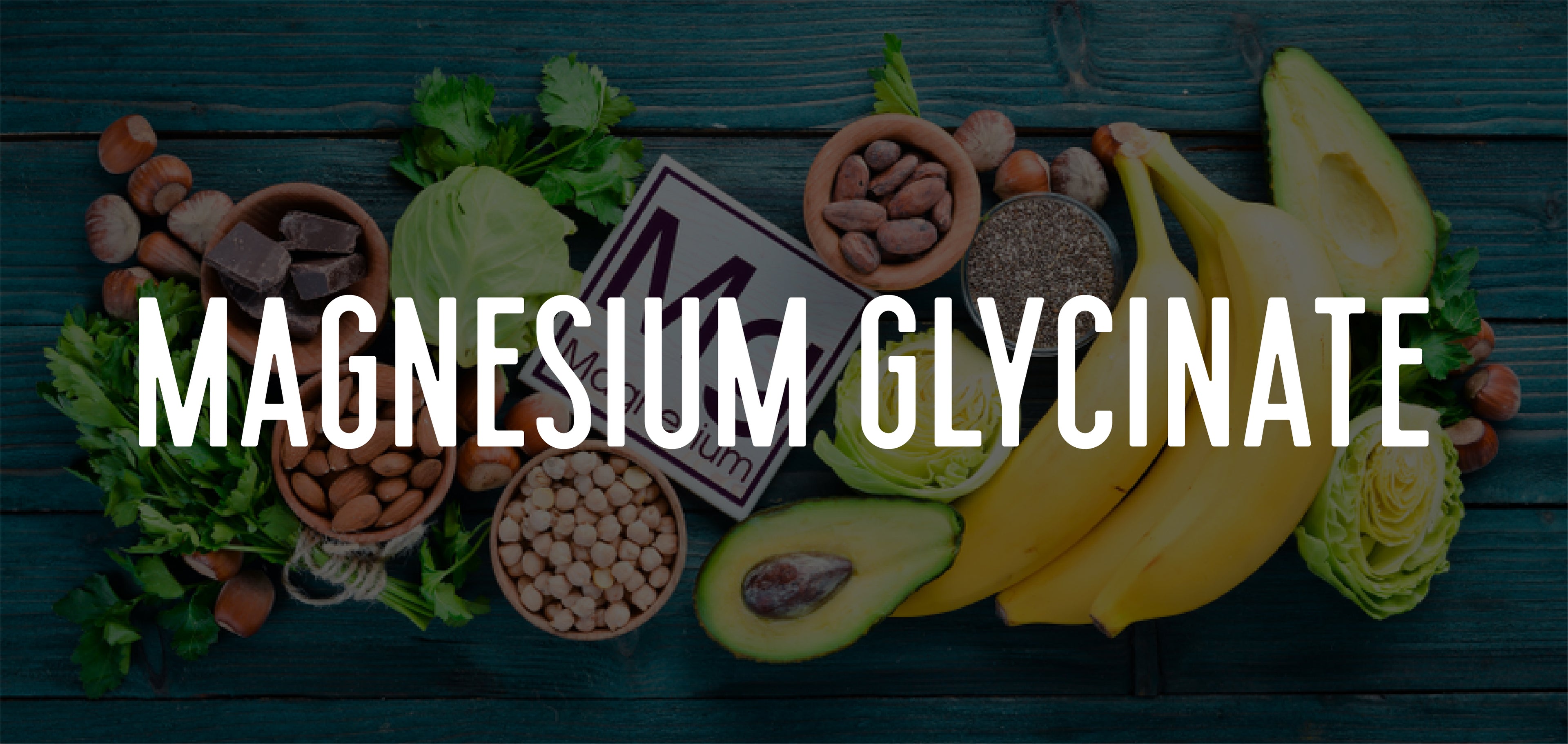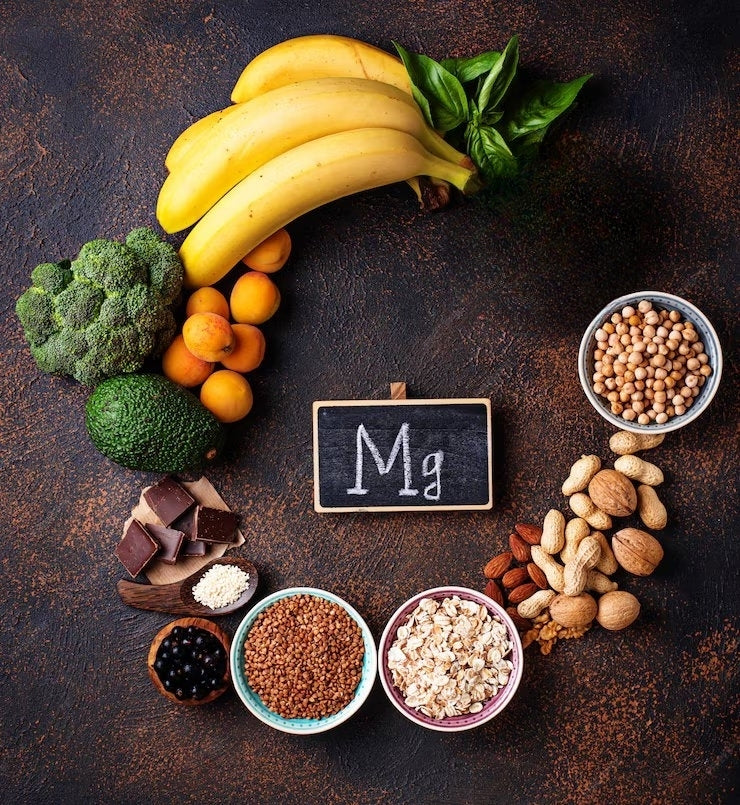
Magnesium Glycinate Capsules: Exploring the Benefits
Magnesium is an essential mineral for health and well-being, involved in over 600 biochemical processes in the body—from energy production and muscle function to nervous system health and blood pressure regulation. Despite its importance, many people fall short of the recommended intake, which can lead to a range of health issues.
Here’s an in-depth look into magnesium glycinate, its benefits, recommended dosages, and how it stands out among other magnesium supplements.
What is Magnesium Glycinate?
Magnesium glycinate is a form of magnesium bound to glycine, an amino acid known for its calming effects. This form, also called "chelated" magnesium, is celebrated for its high bioavailability—meaning it’s well-absorbed and effective. Magnesium glycinate's gentle impact on the digestive system makes it popular, especially among people sensitive to other magnesium forms.
Benefits of Magnesium Glycinate
While all magnesium forms offer similar benefits, their absorption rates differ, which is why magnesium glycinate is often preferred. Here are the main health benefits:
1. Magnesium for Sleep
Magnesium supports the body’s sleep-wake cycle, helping with ATP production (the energy molecule) and facilitating hormonal rhythms that regulate sleep. Research shows that magnesium glycinate can improve sleep quality, ease insomnia, and help reduce restless leg syndrome. Its effectiveness may increase when combined with melatonin and vitamin B6.
2. Magnesium for Anxiety
Magnesium has a calming effect on both body and mind. It helps regulate neurotransmission by lowering NMDA receptor activation, which in excess can reduce GABA—a key neurotransmitter for relaxation and sleep. Lower NMDA receptor activity may ease symptoms of stress and anxiety.

Other notable benefits include:
- Improved Digestion: Magnesium supports healthy digestion and can alleviate constipation.
- Muscle Relaxation: Known as a natural muscle relaxant, magnesium can help relieve cramps and muscle tension.
- Migraine Relief: Some studies suggest that magnesium may reduce migraine frequency and severity in those who are deficient.
- Mood Improvement: Magnesium has a soothing effect that may improve mood and alleviate symptoms of mild depression.
- PMS Relief: It helps reduce menstrual pain and discomfort.
- Bone Health: Magnesium is critical for bone density and helps prevent osteoporosis.
- Heart Health: It plays a role in heart rhythm and blood pressure regulation, lowering the risk of heart disease.
Recommended Dosage of Magnesium Glycinate
A typical recommended dosage of magnesium glycinate is 3 capsules daily, but specific requirements can vary based on individual health needs and goals. For personalized advice, consulting a healthcare provider is advised to determine the best dosage suited to your health profile and any particular conditions.
Magnesium Deficiency: Causes and Symptoms
It’s estimated that up to 75% of adults may not meet the daily magnesium requirements. Certain medications, including proton pump inhibitors and diuretics, and conditions like digestive disorders can increase the risk of deficiency. Common symptoms include muscle cramps, fatigue, anxiety, and trouble sleeping. Prolonged deficiency can contribute to osteoporosis and cardiovascular issues.
Adding magnesium-rich foods to your diet is an effective way to support your intake. Here are some of the top sources:
- Spinach
- Pumpkin seeds
- Almonds
- Avocado
- Dark chocolate
- Bananas
- Quinoa
- Black beans
- Tofu
- Salmon
Magnesium and Vitamin D: A Vital Connection
Magnesium and vitamin D work together to support many bodily functions. Magnesium is needed to activate vitamin D, which in turn supports calcium absorption, a critical factor in bone health. Vitamin D’s roles extend to immune support, hormone regulation, brain health, and heart health, making both nutrients essential. Deficiencies in magnesium and vitamin D are common, particularly in areas with limited sunlight, so it’s wise to check levels with a healthcare provider.
Is Magnesium Glycinate the Best Form of Magnesium?
There are several magnesium forms, each with unique benefits:
- Magnesium oxide: Known for its high magnesium content, though less absorbable.
- Magnesium citrate: Often used as a laxative.
- Magnesium glycinate: Highly absorbable, gentle on the stomach, ideal for overall health.
- Magnesium malate: Favored for muscle relaxation.
- Magnesium threonate: Excellent for brain health due to its ability to cross the blood-brain barrier.
- Magnesium taurate: Supports cardiovascular health.
Are Magnesium Glycinate Supplements Worth It?
Magnesium glycinate supplements are accessible and beneficial for those with magnesium deficiencies or specific health needs, like sleep issues or anxiety.
Unlock the Full Potential of Your Health with Our Magnesium GLycinate Capsules
Magnesium is an essential mineral with far-reaching benefits, including better sleep, improved digestion, and reduced anxiety. Magnesium glycinate, due to its high absorption and gentle impact on digestion, is a popular choice among magnesium supplements. It’s always best to consult a healthcare provider before beginning any supplement to determine the right dosage and ensure it fits with your health needs. With the right guidance, magnesium glycinate can indeed live up to its reputation as a valuable addition to a balanced wellness routine.
